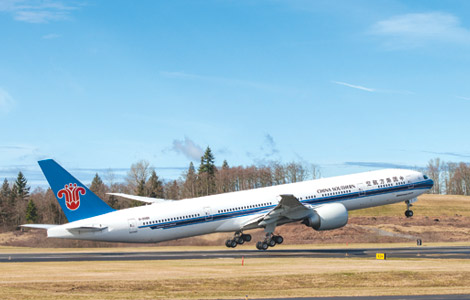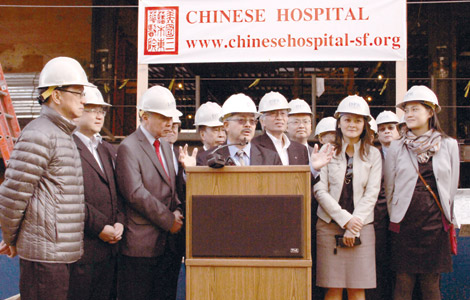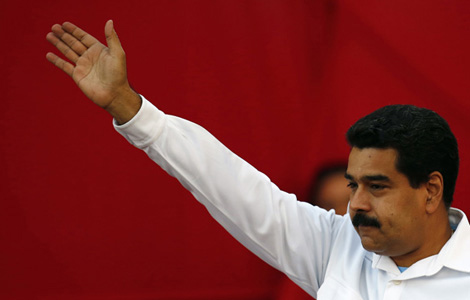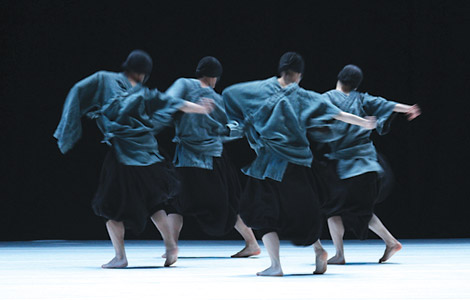Book fair will spotlight Chinese publishing
Updated: 2014-02-27 12:08
By Mei Jia (China Daily USA)
|
||||||||
"Guest of Honor" role at giant 2015 BookExpo will feature 100 firms
Chinese books and authors will be featured as the guest of honor at the world's largest book fair - the Global Market Forum of 2015 BookExpo America (BEA) at the Jacob Javits Center in New York, May 28-30.
China is expected to bring 500 publishing professionals, including 50 authors and representatives from at least 100 publishing companies, who will take part in a variety of events such as panel discussions and debates.
"The agreement with China will be the largest partnership that the Global Market Forum has ever undertaken, and will also be the largest delegation ever to BEA," said Daniel Krtenbrink, deputy chief of mission at the US embassy to China, at the signing ceremony on the agreement of China's participation in BEA in February.
The BEA Global Market Forum, as part of the BEA conferences, has been inviting countries with "an advanced publishing infrastructure", such as Spain, Italy and Russia, to hold a series of events as the guest of honor since 2009.
"Selecting China was an easy decision as there is a great dynamic between China and the United States as well as China's continued growth as an economic power," said Steven Rosato, event director of BEA from Reed Exhibitions.
"There is great opportunity for both the US and the Chinese publishing industries that will allow for both sides to see great benefits, being a win-win for the publishing industries in both countries," he said.
He said the scope and scale of the plans for China will make this the most ambitious international event ever mounted by the BEA.
The US has been China's number one trader in copyrights, according to Wu Shulin, vice-director of the State Administration of Press, Publication, Radio, Film and Television.
In 2011, 5,319 copyrights were bought and sold between the two markets; in 2012, the number was 5,965, amounting to one-quarter of China's total copyright trade in the international market.
Wu said that he hopes the 2015 BEA will help elevate the global influence of Chinese publications, and that "besides cultural and publishing exchanges, it will further enhance mutual understanding and trust between the two people".
Kritenbrink believes that "the common love for literature is one of the many things that unite the US and China". He said people in the US have enjoyed reading works by Mo Yan and Ha Jin.
"This initiative will lead to greater business and publishing opportunities for both countries, as well as wider literary experiences for both readers," Kritenbrink added.
"Promoting that type of mutual understanding only makes our bilateral relationship even stronger," he said.
In the past years, Chinese publishers have been actively bringing the best of US collections to the Chinese market, but the reverse has much room for improvement.
Diana Finch of the Diana Finch Literary Agency said that Americans need more opportunities to learn more about Chinese books and authors. In that sense, she said, BEA certainly is providing a good opportunity for the Chinese publishing industry to gain more exposure in the US.
Finch also pointed out that language is a key problem for Americans to get to know Chinese works and that more translators are needed in the US.
"Often editors of fine literature, even if they might not know a language well enough to do the translation themselves, can read in a foreign language," said Finch. "But there are not many American editors, if any, who can read in Chinese."
"I think other countries and cultures are much more steeped into being multilingual, which the US is not. If you don't read any of their languages it's very difficult to discover something when you can't really access it," said Rosato.
"So just by having the Chinese come over in an organized fashion (with their works translated), it just gives people access which they don't have on an everyday basis in trying to discover new titles," he added.
Rosato said that attending the BEA is also a chance for Chinese publishers to ensure there are quality translations before coming to the US, which the US publishers may not have the resources or abilities to evaluate.
He suggested Chinese publishers "plan, plan, plan and then plan some more" when preparing for their BEA appearance.
"The more events they are able to plan in advance, the more they will increase their success, many times over," he said.
Zhang Yang contributed to this report and can be reached at yangzhang@chinadailyusa.com.

 Airline receives its first Boeing 777-300
Airline receives its first Boeing 777-300
 Freediver takes cheeky selfie with sperm whale
Freediver takes cheeky selfie with sperm whale
 Buried gold coins unearthed in California
Buried gold coins unearthed in California
 Beaming with pride
Beaming with pride
 US expels Venezuelan diplomats
US expels Venezuelan diplomats
 Pentagon chief plans to reduce US army size
Pentagon chief plans to reduce US army size
 2nd Madoff aide testifies, denies knowledge of fraud
2nd Madoff aide testifies, denies knowledge of fraud
 TAO Dance troupe premieres '5' at NYU
TAO Dance troupe premieres '5' at NYU
Most Viewed
Editor's Picks

|

|

|

|

|

|
Today's Top News
China ignores ticking time bomb of increasing waistlines
Shanxi Taxus Pharma said to acquire US medical firm
Chinese sue Japanese firms
TPP talks in final stretch: diplomat
NY fair will spotlight Chinese publishing
US space telescope spots 715 more planets
Bags banned in Boston Marathon
Asiana fined $500,000 over SF crash
US Weekly

|

|







